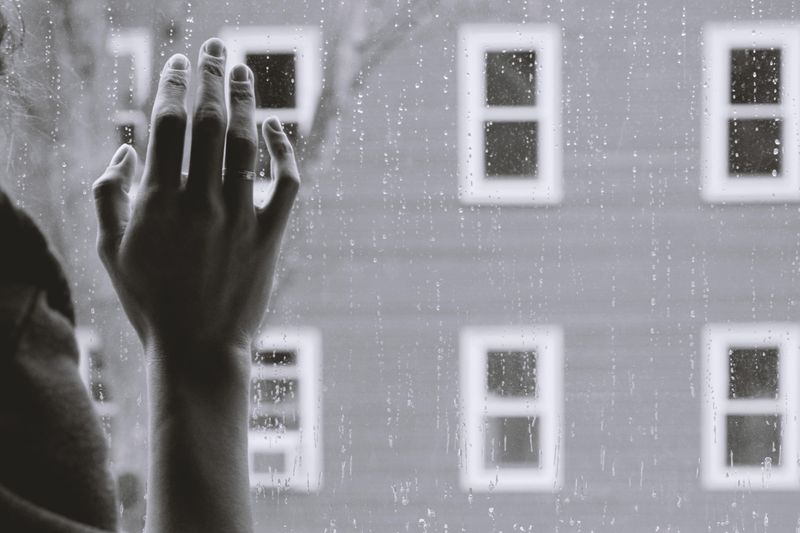 Photo by Noah Silliman on Unsplash
Photo by Noah Silliman on UnsplashHave you ever been isolated or felt lonely? If so, you’re not alone — the "new epidemic of loneliness" is on the rise in recent years.
Social Isolation and loneliness are different from each other — and understanding which one you may be experiencing could help you develop more effective coping skills.
Social Isolation vs. Loneliness
Social Isolation
Social isolation happens when you're physically alone due to circumstances and have a lack of social connections. It's an objective occurrence, meaning the isolation is an observed fact and not something only you perceive.
Social isolation can be connected to:
Not having close family near you
Living alone
Being new to a country
Retirement or unemployment
Health issues impacting your ability to leave home
Lack of financial resources
Loneliness
Loneliness is a subjective feeling that can but doesn’t always happen with social isolation. You may feel lonely even if you do have many social connections. Although different, social isolation is a risk factor for loneliness.
Loneliness can often look like:
Many social engagements but few deeper level one-on-one connections
Feeling like most of your connections are acquaintance-level
Not feeling comfortable sharing the more important parts of your life with others
Not feeling understood or seen by others
How Does It Affect You?
 Photo by Hush Naidoo Jade Photography on Unsplash
Photo by Hush Naidoo Jade Photography on UnsplashBoth social isolation and loneliness cause stressful states of mind. Along with that stress can come the body's physiological responses that lead to negative health effects and risks. Some of these risks are even comparable to smoking or obesity.
Among other health risks, chronic feelings of loneliness have been associated with an increased risk of:
Dementia and Alzheimer's
Depression and anxiety
Heart disease and stroke
Reducing Your Risk: Part 1
 Photo by Alain Wong on Unsplash
Photo by Alain Wong on UnsplashTo reduce your risks associated with social isolation and loneliness, first reflect:
How many social connections do you have?
How many of them do you feel you're close to?
How often do you interact with your social circle?
If you're socially isolated, determine whether you want a broader network of social connections.
If you experience barriers (financial, health, social, etc.), identify ways to work within your limitations. For example:
Geographical distance: When in-person connections aren't possible, evidence shows that virtual connections can help provide a sense of community and meaning.
Chronic health conditions: Support groups may provide a sense of understanding and meaningful connection with others in similar circumstances.
Living alone or financial issues: Opting to live with a roommate could help mitigate both social isolation and financial limitations.
Lack of close family: Intentionally create and develop close and meaningful friendships — build your own "chosen family".
Quiz
Which statements are false?
Example Case 1: Andrew's Social Isolation
Andrew is new to Canada, single, and lives alone. He has very few relatives, and they all live in a different country. He has not yet been able to find a full time job.
He doesn't feel lonely right now, but wants to combat his social isolation.
 Andrew's plan:
Andrew's plan:
Andrew decides to join an online Newcomers to Canada group that meets once a week. He has also joined a local community center that holds free networking events in his area.
Reducing Your Risk: Part 2
 Photo by Kristina Tripkovic on Unsplash
Photo by Kristina Tripkovic on UnsplashEven if you have many social connections, you may still feel lonely. Since loneliness is more related to subjective feelings, there are other actions that can help build your resilience:
Therapy can identify and address any underlying or commonly co-occurring conditions like depression or social anxiety.
Shift your focus from self to others. Interact with strangers and foster your existing connections in an effort to make others feel less alone.
If you assess a situation as stressful, your body reacts by increasing levels of stress hormones that can impact your health. Strive to enjoy your own company while working towards your goals of more fulfilling relationships.
Improve the quality of your existing relationships. For example, share your feelings and struggles. Showing vulnerability like this can help others open up as well, and lead to more meaningful connections.
Scenario 2: Raven's Loneliness
Raven has many friends and a full-time job. They have a roommate but find thatthey don't feel fulfilled in their social life despite having many social engagements every week. They’ve identified that many of their work and social relationships feel surface level and they're craving a deeper connection.
 Raven's plan:
Raven's plan:
Raven decides to open up and try to connect on a deeper level with their existing friends by sharing more and asking deeper questions.
Take Action
 Photo by Warren Wong on Unsplash
Photo by Warren Wong on UnsplashHumans are social creatures — yet many of us are experiencing isolation or loneliness.
Taking care of your social health, just like you take care of your physical and mental heath, is part of the equation of maintaining overall personal wellness.
Your feedback matters to us.
This Byte helped me better understand the topic.




